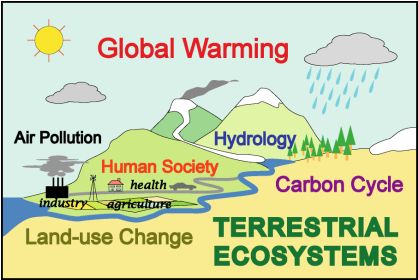

The participants will summarize the accomplishments of ecological studies in the United States and Japan from the viewpoint of environmental science, and discuss future collaborations.
Land, Forest, Grassland, Soil (microbes and rhizosphere), ecophysiology, biogeochemistry, carbon budget, remote sensing, human impact. Disturbance (forest fire), global warming, environmental pollution, ecosystem degradation, long-term ecosystem research (LTER), climate-ecosystem interaction, terrestrial-aquatic systems interaction, ecosystem management
In both Japan and the Unites States, terrestrial ecosystems have undergone and will undergo severe human impacts, and climatic change will exert additionally influences. Therefore, we should correctly understand the climate-ecosystem interactions in the past, present, and future. This US-Japan workshop will summarize the present efforts on field observations, remote sensing, and modeling with respect to ecosystem change. The participants will specify their common issues with high priority and discuss the possibility of collaborations. Especially, they will put focus on the ongoing international projects such as IGBP, GEOSS, LTER, Fluxnet, and so on.
Dr. Akihiko ITOH